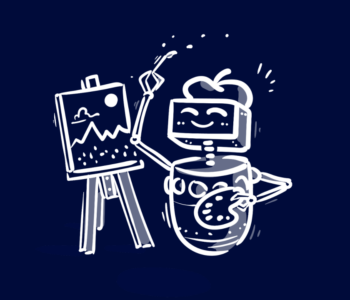
AI automates repetitive human tasks up till now possible to carry out only by humans. Examples include analysing documents, pictures, and complex information.
Take the next step in process automation and improving customer experience
Take the next step in process automation and improving customer experience
At Sollers Consulting, we aim to support our clients in complete transformations of AI automation. We learn and test various AI tools available on the market.
We are helping our clients make the best choices of AI tools to maximize value.


Due to the virtual nature of insurance, the insurance industry is ideal for digitalization.
Based on our experience we selected core areas for quick ROI of AI implementation.
AI automates repetitive human tasks up till now possible to carry out only by humans. Examples include analysing documents, pictures, and complex information.
Humans make mistakes, which results in claim leakage, usually estimated by internal audits. Once trained, AI is consistent and independent of tiredness.
AI automation can shorten the claims handling process, which may result in shorter rent of a replacement car or lower payments of business interruption claims.
AI enables new ways of interacting with customers. An immediate, empathetic and correct response from the insurer can have a positive impact on the customer's perception.
Automatic AI recognition unveils data hidden in unstructured form in documents and photos that previously had to be manually processed by employees. Structured data is the fuel for predictive analytics.
AI allows for automatic search and analysis of different types of contracts. It enables insurers to respond quickly to regulatory inquiries and increases the visibility of contractual risk.
AI automation will reduce manual tasks and foster efficiency, allowing employees to focus on the higher-value creative aspects of work. Additionally, it will create exciting new jobs related to configuring and managing automated processes.
AI can augment the work of all employees, not just experts, leveraging features like analytical skills and scalability to unlock insight and efficiency. This enables faster decision-making, more precise problem-solving, and enhanced innovation across the organization.
AI components are easy to configure
You do not program an AI component, you teach it almost like a human.
So why do companies not adopt the AI revolution relatively quickly?
What's the crux of the matter?
Think of the strategic perspective - critical capabilities of your organization to enable company-wide AI automation
The lack of knowledge related to AI automation stops you from making the right decisions regarding automation planning


AI tools are only a small part of the overall landscape
We are helping insurers in the whole journey of AI-driven transformation
Sollers can support your team in learning AI tools to make the right decisions


Sollers can design and plan transformation of AI automation
Sollers can help you to



The major cloud providers offer a set of various best-of-breed AI components for addressing different problems of automation. You can think of it as building blocks, which democratises the usage of AI.
Examples: AWS, Azure, GCP.
The solution enables end-to-end automation of the insurance claim-handling process. It comes with AI components, reference processes and preconfigured business logic.
Underwriting workbenches support the underwriter workflow in managing new business, renewals and endorsements. They have various automation features which enhance submission, risk selection, pricing, quoting and underwriting. Some of the features are AI-driven.
IDP platforms provide a complete set of functionalities, including AI and NLP, to streamline the entire workflow of extracting information from various types of documents.
Example solutions: ABBYY, Appian, Hyperscience, Indico Data, Tungsten.
Generative AI/Large Language Models (LLM), like ChatGPT, can augment experts, perform complex tasks, and improve business processes. In Sollers Consulting, we leverage the capabilities of LLMs to fit the needs of insurers.
Examples: Amazon Bedrock, Google Gemini, OpenAI.
Predictive Analytics employs statistical algorithms and machine learning techniques to analyse historical data, unveil patterns, and predict future events or trends, allowing organizations to gain insights, anticipate outcomes, and make informed decisions. These solutions are integrated into various AI cloud platforms and enterprise decision engine systems, among others.



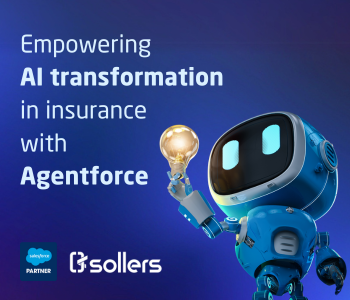

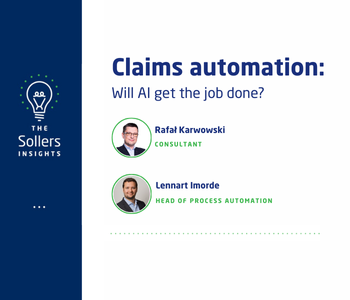
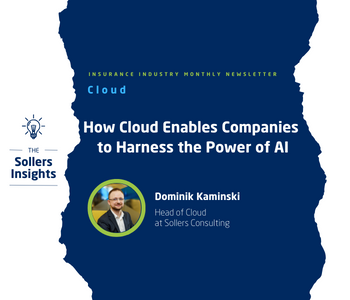
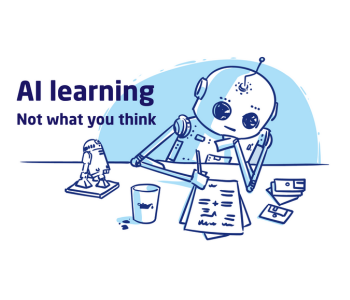
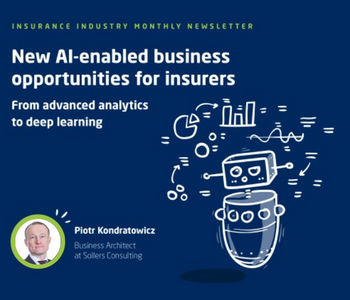
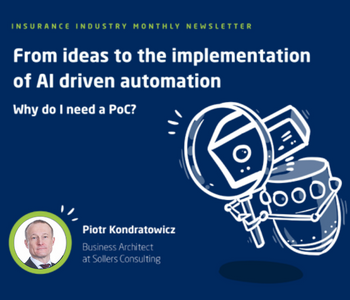
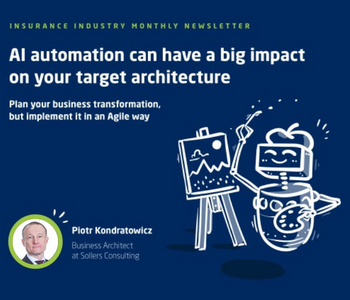

When deploying AI, it's crucial to anonymize and encrypt sensitive data, implement strict access controls, and ensure compliance with data privacy laws. Regularly audit AI models for potential biases and vulnerabilities, and use data minimization practices to reduce the risk of exposure.
AI algorithms can be designed to follow regulatory frameworks by incorporating rules and constraints related to data privacy and security. Compliance is often ensured through ongoing monitoring, audits, and integrating AI with governance tools that track data usage and adherence to industry-specific standards.
To integrate AI with existing infrastructure, start with a thorough assessment of compatibility and scalability. Use APIs or middleware to bridge legacy systems with AI tools, and opt for a phased rollout to minimize disruptions. Continuous monitoring and employee training are essential for a smooth transition.
AI technologies like chatbots and virtual assistants automate customer service and claims handling in insurance. Optical Character Recognition (OCR) speeds up digitizing paper documents, while Intelligent Document Processing (IDP) automates data extraction from complex forms, reducing manual tasks. These tools among many others improve efficiency and enhance customer experiences.